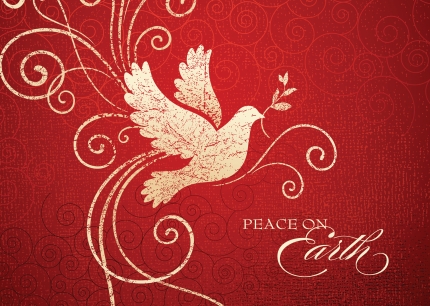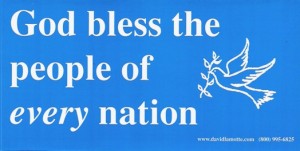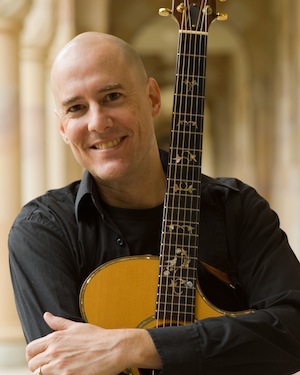“The prophet does not ask if the vision can be implemented, for questions of implementation are of no consequence until the vision can be imagined.”
— Walter Brueggemann
In the field of music therapy, stories are often told of people in advanced stages of dementia who have lost the capacity for speech, yet when they hear familiar hymns, can sing them perfectly. I have experienced that phenomenon firsthand with a declining family friend who was suffering from Alzheimer’s at an unusually young age due to brain trauma in an automobile accident. At the request of his wife, I brought my guitar to the nursing home and played some simple folk songs that he had loved as a child. His eyes lit up and he sang along, remembering the words perfectly, even though spoken words had left him entirely by then. ‘Down in the valley, the valley so low, hang your head over, hear the wind blow.’ And for the rest of my life, I will think of him when I hear that song myself. It is now woven into my story.
Music is deep in us. It has a mystical ability to hold our emotions, our aspirations, our theology, and often our prophecy in ways that seem more powerful than they are explainable. Google announced their top US internet searches for the year this week, and musicians accounted for nine of the top ten people searched for. Music matters to us.
___________________________________________
Music has the capacity to move us, to open our hearts to the prophecy of which Walter Brueggemann writes— to create the vision, which is the necessary first step in changing the world.
___________________________________________
Albert Einstein said, “There are only two ways to live your life. One is as though nothing is a miracle. The other is as though everything is a miracle.” Music is an everyday miracle. Breath blown over the tensing and relaxing vocal folds, strings of hair drawn across strings of metal, or even stretched gut, skins stretched taut over empty round holes and struck in rhythm—these produce unfathomably intricate patterns that travel through the air in waves of pressure. When these waves encounter our eardrums, they are deciphered and interpreted to become music, which can almost instantly make our souls swell. Music can make us smile or weep, even without words to interpret the emotion carried by the instruments. Music has the capacity to move us, to open our hearts to the prophecy of which Walter Brueggemann writes— to create the vision, which is the necessary first step in changing the world.
 So it is extremely important which songs we choose as guides and containers for our faith and our values. The creation of a new hymnal—an official canon of songs to represent our particular iteration of Christianity, in this time and this denomination—is a necessarily controversial undertaking, and I do not envy the work of the selection committee.
So it is extremely important which songs we choose as guides and containers for our faith and our values. The creation of a new hymnal—an official canon of songs to represent our particular iteration of Christianity, in this time and this denomination—is a necessarily controversial undertaking, and I do not envy the work of the selection committee.
That said, I am impressed with the choices they have made in this new hymnal, Glory to God: The Presbyterian Hymnal. As one who believes that work for peace and justice is not an optional elective for Christians who are interested, but rather is basic and fundamental to Christ’s instructions for us on how to follow him (rather than simply believing), I am moved by the vision this collection offers.
___________________________________________
While it pervades our songs and cards during the Christmas season, ‘peace’ is actually quite a controversial concept.
___________________________________________
While it pervades our songs and cards during the Christmas season, ‘peace’ is actually quite a controversial concept. In our world so often characterized by violence, empire, and militarism, peace is often dismissed as the purview of naive idealists rather than the practical work to which we as followers of Jesus are daily called. We often use the word peace as a noun, representing an ideal world without conflict. Holding up that utopian vision, we justice-minded Christians often ask “Is peace possible?”, with an implied affirmative answer. In truth, though, such perfect placidity is not possible – at least not if there are human beings anywhere in the equation! The good news, though, is that the answer does not really matter a great deal – because it is not a very helpful question.
 A much more productive question is, “How can we move closer to that vision today?” Rather than debating whether the goal is achievable, we need to ask how we are called to work for peace. If we are to be faithful (another unachievable but worthy effort), we must be busy with the work of peacemaking, which means approaching conflict in ways that are constructive rather than destructive, and engaging the issues of injustice that lead to destructive conflict in the first place.
A much more productive question is, “How can we move closer to that vision today?” Rather than debating whether the goal is achievable, we need to ask how we are called to work for peace. If we are to be faithful (another unachievable but worthy effort), we must be busy with the work of peacemaking, which means approaching conflict in ways that are constructive rather than destructive, and engaging the issues of injustice that lead to destructive conflict in the first place.
Peace (the presence of justice, as Dr. King described it) and placidity (the lack of conflict) are often conflated, and the quest for personal peace is often substituted for the work of peacemaking in community. Certainly the former is much easier to take on – even to envision. However, Glory to God seems to offer a more nuanced understanding of these ideas and a rich perspective on how we are to address them.
It strikes me as courageously faithful, in a country that bases so much of its identity on military might, to include hymns such as #344, Where Armies Scourge the Countryside. The beauty of that hymn lies in its ever-shrinking perspective—first speaking of the scourge of violence on the scale of armies, then of anger that ‘festers in the heart,’ and ‘homes… where love dissolves in blame, where walls designed for sheltering care hide deeds of hurt and shame.’ This hymn brings the large scale down to the small scale, implying their interrelatedness and our own responsibility for addressing both.
___________________________________________
It strikes me as courageously faithful, in a country that bases so much of its identity on military might, to include hymns such as #344, Where Armies Scourge the Countryside.
___________________________________________
In Psalm 85, a songwriter of another time wrote ‘Righteousness and peace have kissed each other.’ When this hymnal is closed, that seems to almost literally happen, because on the page that faces hymn #345, we find ‘In An Age of Twisted Values.’ Playing the role of ‘righteousness’ in kissing ‘peace’ on the opposite page, this hymn explicitly owns our responsibility for ushering in the Kingdom of God, which is rooted in a different set of rules from those dominant in the world.
In explicit, first-person language, the writer confesses complicity in injustices, with lines like “with sophisticated language we have justified our greed.” The hymn does not merely bemoan the state of things, however. It owns our responsibility to live out the Kingdom rather than simply hoping for it, as we sing “hear our cry and heal our nation; help us show more love, we plead.” The hymn suggests that we must wrestle with our responsibility to challenge oppressive systems, and at the same time, understand that we are integral participants in those systems.
 There are hymns here that are gently radical, such as #340, This Is My Song, which, in referring to the ‘God of all the nations,’ already stakes out a position against ‘God Bless America’ theology, which is conspicuous in whom it excludes and seems ever-eager to draft God to our side in international conflicts.
There are hymns here that are gently radical, such as #340, This Is My Song, which, in referring to the ‘God of all the nations,’ already stakes out a position against ‘God Bless America’ theology, which is conspicuous in whom it excludes and seems ever-eager to draft God to our side in international conflicts.
___________________________________________
Some will sit uneasily with such bold challenges to power and to the status quo, but this is the role of prophecy – to shake us from our complacency and reveal that the gospel is indeed radical.
___________________________________________
Some selections are more direct in their challenge, such as hymn #100, My Soul Cries Out with a Joyful Shout – perhaps better known as The Canticle of the Turning – which reads, “From the halls of power to the fortress tower, not a stone will be left on stone / Let the king beware for your justice tears every tyrant from his throne / The hungry poor shall weep no more for the food they can never earn / There are tables spread, every mouth be fed for the world is about to turn.”
 Some will sit uneasily with such bold challenges to power and to the status quo, but this is the role of prophecy—to shake us from our complacency and reveal that the gospel is indeed radical. The gospel calls us to embrace unpopular and rebellious attitudes toward our culture’s generally accepted values and practices, and our hymns, if they are faithful, should do the same.
Some will sit uneasily with such bold challenges to power and to the status quo, but this is the role of prophecy—to shake us from our complacency and reveal that the gospel is indeed radical. The gospel calls us to embrace unpopular and rebellious attitudes toward our culture’s generally accepted values and practices, and our hymns, if they are faithful, should do the same.
Hymns have the capacity to inspire and move us. They bind us together as we sing in community. They can show us a vision of where we are headed, reveal a true picture of where we are, give us a window into the love of God, and strengthen us for the struggle to change the world by making that love tangible.
The extraordinary thing about music, though, is its tendency to become part of us, to weave a thread into our own stories, which then literally becomes a part of our identity, forging neural pathways that are with us forever. Hearing a hymn from childhood, or even a pop song from a particular time in our lives, can take us right back to that piece of our lives and the feelings that go with it. To invite hymns into our worship is to weave them into our stories, and into our very selves.
___________________________________________
The gospel calls us to embrace unpopular and rebellious attitudes toward our culture’s generally accepted values and practices, and our hymns, if they are faithful, should do the same.
___________________________________________
A rich faith journey requires many elements, and it matters where we turn to find the music that will inform and inspire us. I am encouraged to see that the Presbyterian Church (USA) is looking in this direction and to this collection for guidance on that journey.
AUTHOR BIO: David LaMotte is a songwriter, speaker and author from Black Mountain, North Carolina. His most recent title is White Flour, an illustrated children’s book about creative non-violence in which the Coup Clutz Clowns take on the Ku Klux Klan (whiteflourbook.com). He is also the founder and director of PEG Partners (www.pegpartners.org), which supports schools and libraries in Guatemala, and the Clerk of the AFSC Nobel Peace Prize Nominating Task Group. More on his music and activism can be found at www.davidlamotte.com.
More from Advent IV: PEACE on Earth, Goodwill to All.
Read more articles in this series.










Pingback: The Prophet’s Song | THINKING PRESBYTERIA...
Thank you, David for your well-thought words. You are always inspiring.
David, we have never met — I keep missing you at Stony Point. But I have been introduced to your music making through Rick, Kitty, and others, and especially to “White Flour,” which is genius!
This essay is so rich, bringing together so many aspects of music — it’s ability to touch deep roots in those with whom we seem to have lost other communication, its basis in abstract physics theory, its poetry, and its role in shaping and motivating us within the faith community in particular.
What first literally caught my ear, however, was your singing the one hymn I have championed for 3 hymnals, and which (I rejoice!) is now finally a part of official Presbyterian hymnody. “This Is My Song” is such a powerful statement, and “The Canticle of the Turning” is such a beautiful restatement of Mary’s song – both from mid-twentieth century, and yet lending new life to our denomination’s song.
Thank you for your voice – both written and sung.
Robin
Pingback: The Prophet’s Song | PSYC0203 | Scoop.it